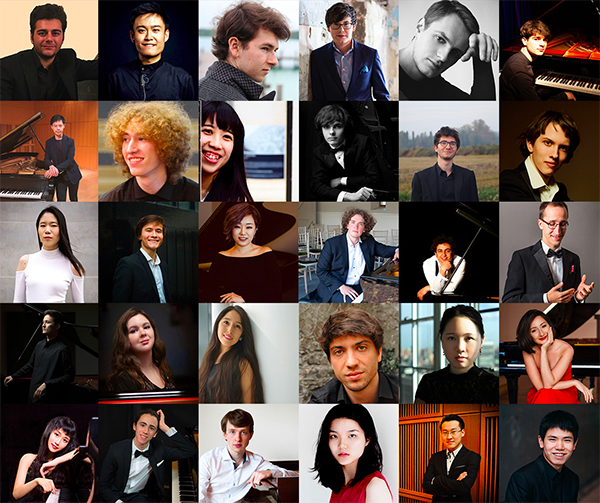by Daniel Hathaway

As is the case with all international competitions, participants come from far and wide: from China (4), Russia (4), Italy (3), the U.S. (3), Japan (2), the United Kingdom (2), and Austria, Azerbaijan, Canada, Croatia, France, Germany, Peru/Canada, South Korea, Spain, Taiwan, Ukraine, and Uzbekistan (1 each). Those are their official home countries, although their studies have dispersed them all over the map.
The final 30, announced on July 1, were winnowed by a selection jury from videos sent in by more than 130 hopefuls. The competition will be conducted remotely, through videos recorded at Steinway facilities in the U.S., Europe, and China. By the time the first round officially begins on July 31, twelve will have performed in Hamburg, six each in Cleveland and London, four in New York, and two in Beijing.
Ranging in age from 18 to 30, the contestants are well accustomed to the pressures of international competitions, having taken home top prizes in a long list of contests. Several have already recorded more than one album. At least four of the contestants are also composers who will include their own works in their performances.
Although their bios are heavy on their prior accomplishments in the piano world, there are hints of wider musical and avocational interests that we plan to explore next week in individual interviews. One British pianist was invited to play for Queen Elizabeth II’s 90th Birthday celebrations, and another is pursuing his second master’s degree — in musicology, having already earned one in geology. A Croatian pianist runs his own chamber music festival.
One interesting aspect of this summer’s competition is that contestants have been allowed to construct their own programs rather than having to fulfill specific requirements. The only rubric is that the 20-minute performances in Round One and 30- to 35-minute performances in the Final Round should feature contrasting pieces. This encourages individual personalities to shine through, and some interesting choices have been made: works by Ginastera, Kapustin, Albéniz, Granados, and Janáček, rarely heard in competitions, are on the list, along with pieces by William Bolcom and Florence Price, and Earl Wild’s arrangements of Gershwin.
Look for more information next week, when we’ll also visit the video techies who are laboring behind the scenes to make this virtual competition possible.
Published on ClevelandClassical.com July 21, 2020.
Click here for a printable copy of this article


